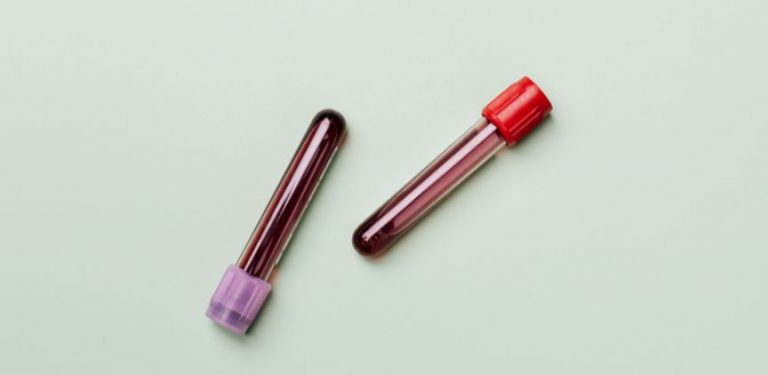Harnessing the Immune System
Globally, breast cancer is the most commonly diagnosed cancer in women. In 2023, it’s expected that approximately 300,000 women in the United States will be diagnosed with breast cancer and 44,000 will die from it. Statistics reveal that about 12% of women (1 in 8) and 0.1% of men (1 in 1,000) will be diagnosed with breast cancer during their lifetime. These alarming statistics show the urgent need for more effective and longer-lasting treatment options.
Currently, treatment for breast cancer typically includes surgery, if the disease is diagnosed early, as well as additional treatments such as chemotherapy, radiation and hormonal therapy. However, breast cancer immunotherapy is a rapidly developing treatment that is showing improved treatment outcomes for certain types of breast cancer, including early-stage high-risk triple-negative breast cancer (TNBC) and metastatic triple-negative breast cancer.
TNBC is a type of breast cancer that has historically been associated with poor outcomes because it has no receptors for estrogen (ER), progesterone (PR) or human epidermal growth factor receptor 2 (HER2), which are the receptors that current breast cancer treatment options target.
Types of Breast Cancer Immunotherapy Drugs
Immunotherapy drugs use the power of the body’s immune system to treat specific types of breast cancer.
There are two main types of breast cancer immunotherapy drugs:
- Immune checkpoint inhibitors: These medications block proteins that prevent the immune system from attacking cancer cells, which helps to restore the immune response against cancer cells.
- Monoclonal antibodies: These medications attach to specific proteins on cancer cells to stop them from growing or spreading.
Atezolizumab (Tecentriq) is a type of immunotherapy drug that is used in combination with nabpaclitaxel (Abraxane) to treat metastatic or advanced triple-negative breast cancer with PD-L1 protein expression. Atezolizumab blocks PD-1 and helps to boost the immune response against breast cancer cells, which often shrinks tumors. Another type of immunotherapy drug is Pembrolizumab (Keytruda), which is used in combination with chemotherapy before and after surgery for early-stage high-risk triple-negative breast cancer.
Immunotherapy drugs are typically given intravenously, every three to six weeks for several months and up to two years.
Side Effects of Breast Cancer Immunotherapy Drugs
Side effects of immunotherapy drugs depend on the type of drug or combination of drugs, the dosage and the overall health of the patient. Side effects of immunotherapy drugs may include:
- Fatigue.
- Nausea and vomiting.
- Appetite loss.
- Infection.
- Constipation or diarrhea.
- Cough.
- Fever.
- Infection.
- Low white blood cell count.
More serious reactions can occur, including:
Infusion reactions – similar to an allergic reaction, some people may have an infusion reaction leading to symptoms such as fever, chills, rash, itching, facial flushing, dizziness, wheezing and difficulty breathing.
Autoimmune reactions – in some cases, the body’s immune system starts attacking healthy tissues and organs in the body, which can lead to serious or life-threatening issues in the liver, lungs, intestines, kidneys or other organs.
Reporting any new side effects to your healthcare team is essential for optimal outcomes. Your treatment may need to be stopped and additional treatment, including high-dose corticosteroids, may be needed to suppress your immune system.
Your doctor will discuss the benefits and risks of all treatment options to determine the best treatment plan for your situation.
Signs and Symptoms of Breast Cancer
Signs and symptoms of breast cancer may include:
- A new lump in the breast or armpit.
- Swelling or thickening of an area of the breast.
- Dimpling of the skin of the breast.
- Flaking or redness in the area of the nipple or breast.
- Inverting of the nipple.
- Pain in the nipple area.
- Discharge or blood coming from the nipple (other than breast milk).
- Change in shape or size of the breast.
- Pain in any part of the breast.
Symptoms of breast cancer vary, and some people may have no signs or symptoms at all. If you have any new or concerning breast symptoms, it’s important to speak with your doctor. Early evaluation, diagnosis and treatment provide better outcomes.
Beyond Traditional Treatments
Breast cancer is a major health concern for women around the world, accounting for thousands of deaths each year. Immunotherapy is a promising treatment option that uses the body’s immune system to fight certain cancers, including early-stage high-risk triple-negative breast cancer and metastatic triple-negative breast cancer.
Similar to all cancer treatments, there are side effects of immunotherapy medications, so the benefits and risks of treatment need to be thoroughly discussed before treatment. Immunotherapy has shown promising results for treating early-stage high-risk triple-negative breast cancer and metastatic triple-negative breast cancer, offering improved outcomes and hope for many patients.
Read on to learn about menopause belly bloating and how to stop it.
Article Resources
- Immunotherapy for Breast Cancer | Canadian Cancer Society
- Immunotherapy for Breast Cancer | American Cancer Society
- Immunotherapy | Breastcancer.org
- Immunotherapy: For Breast Cancer | Cancer Research Institute
- Immunotherapy for Breast Cancer | Cleveland Clinic
- What are the Symptoms of Breast Cancer? | Centers for Disease Control and Prevention

